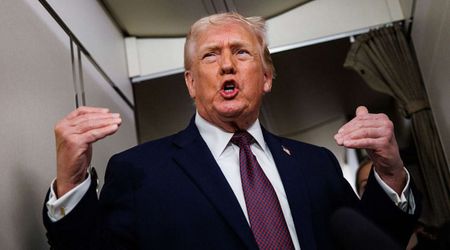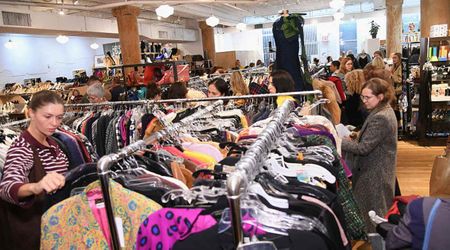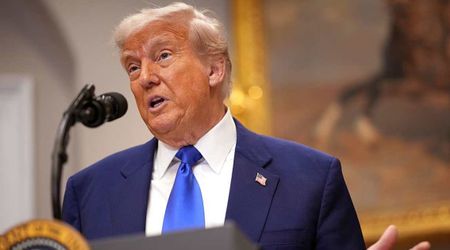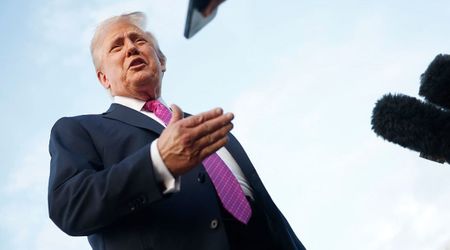Unraveling the Tale of $280 Billion Pandemic Fraud That Shocked the Nation

In the tranquil waters of Florida’s Withlacoochee Bay, where pelicans divebomb and sunsets promise paradise, a two-acre uninhabited island named Sweetheart became an unwitting player in the grand grift of pandemic fraud. Florida businessman Patrick Parker Walsh, lured by the allure of a private oasis, found himself entangled in a web of deception that led to a federal prison sentence of five and a half years. His crime was stealing nearly $8 million in federal COVID-19 relief funds, an audacious act among the thousands that collectively plundered over $280 billion in pandemic aid.

What is The Pandemic Fraud About?
The pandemic, with its economic devastation, triggered an unprecedented distribution of $4.3 trillion in aid by the U.S. government. A review of hundreds of pandemic fraud cases unveils a mosaic of thieves and scam artists who exploited the government's goal to provide swift aid with minimal hassle. Patrick Walsh's case exemplifies the simplicity of the crimes, where safeguards were dropped to expedite financial assistance, paving the way for a legion of swindlers to seize the opportunity.
The pandemic fraudsters, drawn from diverse backgrounds, squandered their ill-gotten gains on extravagant lifestyles. Houses, luxury watches, diamond jewelry, Lamborghinis, and lavish vacations were among the spoils. The tales span from a Tennessee rapper boasting about stealing over $700,000 in pandemic unemployment insurance to a former pizzeria owner using pilfered aid to acquire an alpaca farm in Vermont. Even an ex-Nigerian government official, arrested with a $10,000 watch and a $35,000 gold chain, joined the ranks of those who exploited the pandemic aid.

The Federal Justice System's Dilemma and Profiles of Pandemic Fraudsters
The scale and scope of the fraud, however, pose a monumental challenge to the federal criminal justice system. With nearly 3,200 defendants charged with COVID-19 relief fraud and about $1.4 billion seized, the task remains colossal. Bob Westbrooks, former executive director of the federal Pandemic Response Accountability Committee, notes the limitations of the system in addressing the unprecedented volume of cases involving domestic and foreign actors. Despite the hurdles, the Justice Department remains undeterred, deploying special "strike forces" in a relentless pursuit of COVID-19 aid thieves. As U.S. Deputy Attorney General Lisa Monaco declared in August, "We'll stay at it for as long as it takes."
Among the rogues is Dr. Konstantinos Zarkadas, a New York doctor drowning in debt. Falsifying at least 11 pandemic aid applications netting him almost $3.8 million, Zarkadas indulged in a high-rolling lifestyle, purchasing Rolex and Cartier wristwatches and making a hefty down payment on a yacht. His audacity reached a peak when he sent $80,000 of the stolen cash back to settle a federal lawsuit. Then there's Lee E. Price III from Houston, a convicted felon for forgery and robbery. Price concocted bogus aid applications for nonexistent businesses, siphoning nearly $1.7 million. His spending spree included a Rolex, a flashy white Lamborghini Urus, and substantial sums at a Houston strip club. Price's sentence: more than nine years in prison. Georgia's Vinath Oudomsine fabricated a company, claiming it made $235,000 a year with 10 employees. Swift government aid of $85,000 fueled his extravagant purchase, a 1999 Charizard Pokémon card worth nearly $58,000. The sentencing judge termed it an "insult" to a nation grappling with the pandemic.

A Desperation Turned Greed
Patrick Walsh's trajectory from legitimate businessman to pandemic fraudster reflects the desperation felt by many. Once the owner of a fleet of advertising blimps, Walsh faced financial ruin after a blimp crash and the onset of the pandemic. Panic led him to submit over 30 fraudulent aid applications, pocketing $7.8 million.
Walsh's attorneys argued his motivation was desperation, not greed, as he sought to rescue his businesses and support his large family of 11 children. However, U.S. District Judge Allen C. Winsor dismissed this as more than "a single moment of weakness." Walsh was sentenced to over five years in prison, agreeing to return the stolen funds and sell Sweetheart Island, the symbol of his ill-gotten gains. As Walsh's attorneys claimed he viewed Sweetheart Island as a real estate opportunity, the tale of this uninhabited oasis remains a stark reminder of the lengths individuals went to exploit the pandemic for personal gain.
The pandemic fraud continues to unravel, revealing the audacity of those who exploited a crisis meant to aid the struggling. With the federal justice system stretched to its limits, the pursuit of justice remains a formidable challenge. As investigators grapple with the complexity of digital evidence and financial trails gone cold, the quest to unmask the full extent of the pandemic fraud iceberg remains ongoing. In the aftermath, the nation grapples not only with economic losses but with the bitter realization that, in the face of crisis, some chose greed over collective well-being.





















